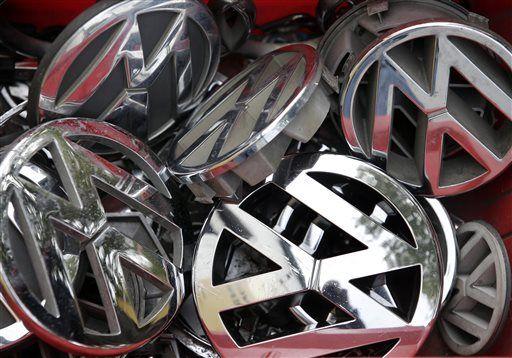As you drive into Baton Rouge and cross the Mississippi River Bridge, dark gray and white clouds seemingly hover over the downtown skyline. Only those clouds are billowing out of ExxonMobil’s refinery and aren’t clouds — they’re columns of exhaust.
Between 2008 and 2011, the compound released nearly four million pounds of volatile organic compounds without the state government’s permission into the city’s air, according to National Public Radio. VOCs create ozone, smog and can cause respiratory problems such as asthma.
Driving a Volkswagen diesel vehicle in Baton Rouge should reduce the emissions adding to ExxonMobil’s mix of chemicals poisoning the air, but Tuesday, U.S. regulators pressured the company to admit 11 million of its diesel vehicles do not meet the required emissions standards.
The German manufacturer equipped software to its diesel vehicles capable of cheating emissions tests. Before Volkswagen’s announcement on Tuesday, the company only admitted to the problem affecting 500,000 U.S. vehicles, compared to the actual 11 million worldwide.
Volkswagen’s scandal may lead to investigations of vehicle manufacturing companies in the U.S., and if domestic companies lied to consumers about environmentally friendly features, what are the consequences?
In 2009, the federal government paid for a $79.68 billion bailout program, pulling General Motors and Chrysler out of financial crisis. If taxpayer dollars went to the creation of software to cheat Environmental Protection Agency emissions standards, would the government force compensation of not only the vehicle but also the bailout funds?
With slow, nine-year economic growth, the U.S. government would not risk domestic auto-industry failure, which would surely occur in the aftermath of a largescale scandal. Economic dominance is the driving force in U.S. foreign and domestic policies, and the discovery of Volkswagen’s scam is a German economic issue, not an American one.
While the continuation of America’s fortunate economic recovery is a necessity, automotive companies may lie to consumers on the same scale as tobacco companies did in the mid-1900s.
Smoking cigarettes causes immediate health risks, which are mostly preventable through an individual’s choice to stop smoking. Vehicles are releasing pollutants into the atmosphere, creating long-term health risks that may not affect Americans today but will surely affect future generations. One individual’s choice to drive an environmentally friendly vehicle won’t change that, but 11 million could have.
Justin DiCharia is a 21-year-old mass communication senior from Slidell, Louisiana. You can reach him on Twitter @JDiCharia.
OPINION: Volkswagen scandal turns regulator’s eyes on the auto-industry
September 23, 2015

Michael Sohn
Volkswagen ornaments sit in a box in a scrap yard in Berlin, Germany, Wednesday, Sept. 23, 2015. The revelation that Volkswagen rigged diesel-powered cars to emit lower emissions during EPA tests is particularly stunning since Volkswagen has long projected a quirky brand image with an emphasis on being environmentally friendly _ an image that now appears in tatters. (AP Photo/Michael Sohn)
More to Discover










